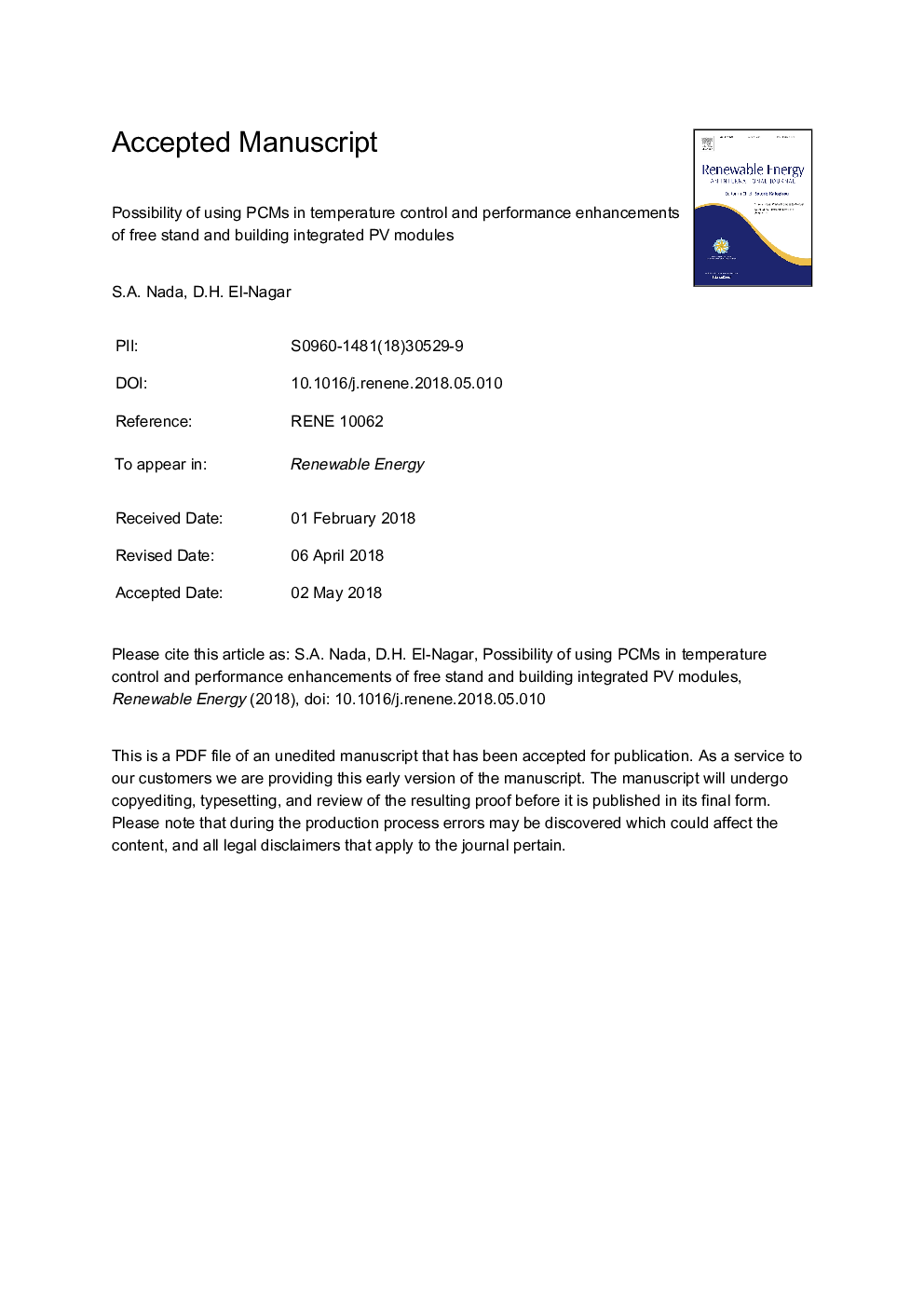| Article ID | Journal | Published Year | Pages | File Type |
|---|---|---|---|---|
| 6764138 | Renewable Energy | 2018 | 36 Pages |
Abstract
Recently, phase change materials (PCMs) are suggested for the temperature control and the performance enhancement of PV modules. However, the thermal conductivity of the PCMs is very low and integrating the PV with PCM can adversely affect its performance. In the present work, the effectiveness of using PCM in thermal regulation and efficiency enhancement of free stand and building integrated PV modules are investigated. Four different PV modules; free stand, building integrated, PCM integrated, and Al2O3 nanoparticles enhanced PCM integrated are experimentally investigated. Temperatures distributions, open-circuit voltage, short-circuit current, output power and the efficiency of the modules were recorded and analyzed. The results show that (i) integrating the PV module to the building wall dramatically rise the temperature of the module where the daily maximum temperature increased from 50â¯Â°C to 75â¯Â°C, (ii) integrating the free stand module with PCM box can adversely affect its performance where the maximum daily temperature increased from 50â¯Â°C to 62â¯Â°C and adding nanoparticles to the PCM can improve the performance where the temperature is reduced to 59â¯Â°C, and (iii) integrating the building integrated PV module with PCM box enhances its daily average efficiency by 7.1% and the enhancement ratio increases to 14.2 by improving the thermal conductivity of the PCM by adding 2% Al2O3 nanoparticles.
Related Topics
Physical Sciences and Engineering
Energy
Renewable Energy, Sustainability and the Environment
Authors
S.A. Nada, D.H. El-Nagar,
